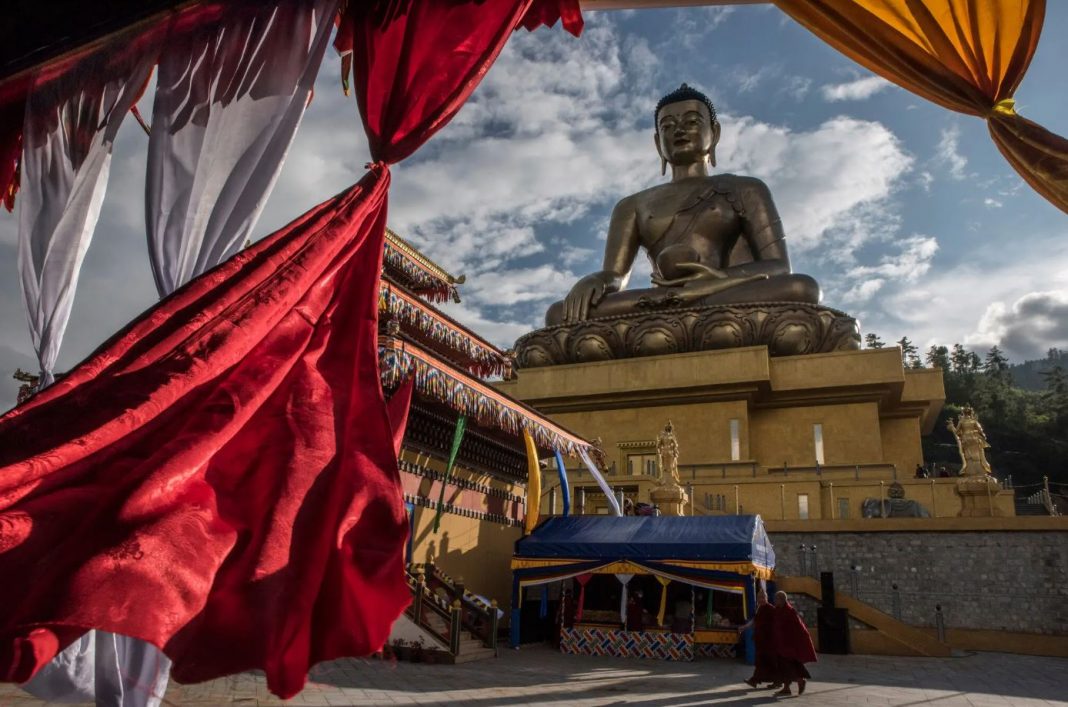The tiny Buddhist kingdom of Bhutan, which is located on the eastern edge of the Himalayas, is frequently referred to as “the last Shangri-La” because of its abundance of natural beauty, sustainable development, and rich cultural heritage. For a very long time, Bhutan has resisted the rapid financial returns of mass tourism in favour of conservation. The strategy is consistent with a cultural ideology in which the riches and success of a society are evaluated not by the gross domestic product but by a national happiness index instead.
Since 1974, when foreigners were first allowed to visit Bhutan, the country has had a unique “high value, low volume” tourism policy, requiring international visitors to pay at least a daily rate of $250 that covered accommodations, meals, and a mandatory tour guide in addition to including a $65 “sustainable development fee” to the government. The convenience of the scheduled excursions was highly valued by many travellers, despite the fact that several vacationers were dissatisfied with the substandard plumbing in their hotels, the sluggish internet connection, and the tasteless cuisine.
However, a significant number of travel providers are expressing concern about the shift. They are concerned that the new structure will result in them losing all of their customers. They are unsure as to whether or not they will be able to attract a sufficient number of tourists despite the increased fee, or if tourists will even require their services at all now that they will have the option to book directly through hotels, tour guides, and other similar establishments. This is causing them to worry that the new structure will result in them losing all of their business.
The previous policy, according to officials from the government, was designed to discourage additional out-of-pocket spending. This is because many travel agents would construct their trip activities, food, and other offerings so that they did not exceed the daily rate of $250; this practise effectively turned the policy’s minimum rate into the maximum rate.
Revenues earned from tourism play an important role in the development of Bhutan’s economy and account for 6 percent of the country’s gross domestic product. A total of around 29,000 visitors brought in approximately $19 million in income for Bhutan in the year 2020, before the country’s borders were closed in March of the same year. According to the Tourism Council of Bhutan, the country had 315,599 visitors in 2019, resulting in a revenue of $225 million for the tourism business. Earlier this year, the monarchy began easing some of its travel restrictions, and it began admitting foreign tourists on a case-by-case basis while still forcing them to go through quarantine.
According to Karma Tshering, an expert in environmental conservation and ecotourism, the government should use the increased tourism tax to meet its sustainability goals. These goals could include investing in hiking trails, amenities along highways, as well as training and support for service providers.
Mr. Tshering is concerned that our people will be left in the hands of the tourists to negotiate and bring down prices if there is no minimum-spend policy. “This helps our service providers obtain minimum revenue to support their services,” he said, adding that there could be “a chain impact on delivering quality services and high-end experiences.”
A number of industries recognise an opportunity presented by the upheaval. The revision was long overdue, according to Sonam Wangchuk, head of the Hotel & Restaurant Association of Bhutan, and it would bring about a beneficial transformation in which all hotels and restaurants will have equal chance.

